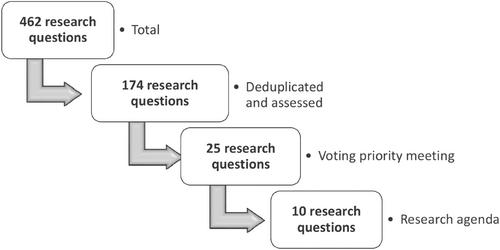Development of the Dutch translational knowledge agenda for inherited metabolic diseases
Abstract
Background
Inherited metabolic diseases (IMDs) may have considerable implications for patients and their families. Despite their individual rarity, covering a spectrum of over 1800 distinct diseases, the diseases collectively exert a significant impact, with often lifelong disabilities. The United for Metabolic Diseases consortium was established to catalyze research with translation into the best possible care.
Aim
To generate a translational knowledge agenda, which identifies and prioritizes research questions, directly relevant to patient care or for IMD patients and their families.
Methods and Results
Following a process established by the Knowledge Institute of the Dutch Association of Medical Specialists, we generated a comprehensive translational knowledge agenda for IMDs. A multidisciplinary steering committee, composed of 12 diverse metabolic experts collected research questions through an online questionnaire using snowballing. The 462 proposed questions were categorized and prioritized during a meeting attended by 22 representatives of all stakeholder groups. The resulting top 10 research questions cover multiple themes, i.e. prediction of disease progression, development of novel tools, mechanistic insights, improved diagnostics, therapeutic integration of multi-omics techniques, assessment of impact on daily life, expanding treatment avenues, optimal study designs, effect of lifestyle interventions, and data utilization using FAIR principles.
Discussion
This collective endeavor reflects the collaborative spirit needed for rare disease research. This knowledge agenda will guide funding directions and applications but will also boost interdisciplinary collaboration to push the field of IMDs research forward in a renewed UMD consortium. Patient engagement, transparency, and a comprehensive approach make this knowledge agenda a pivotal step toward addressing the pressing research needs and priorities in this domain.


 求助内容:
求助内容: 应助结果提醒方式:
应助结果提醒方式:


